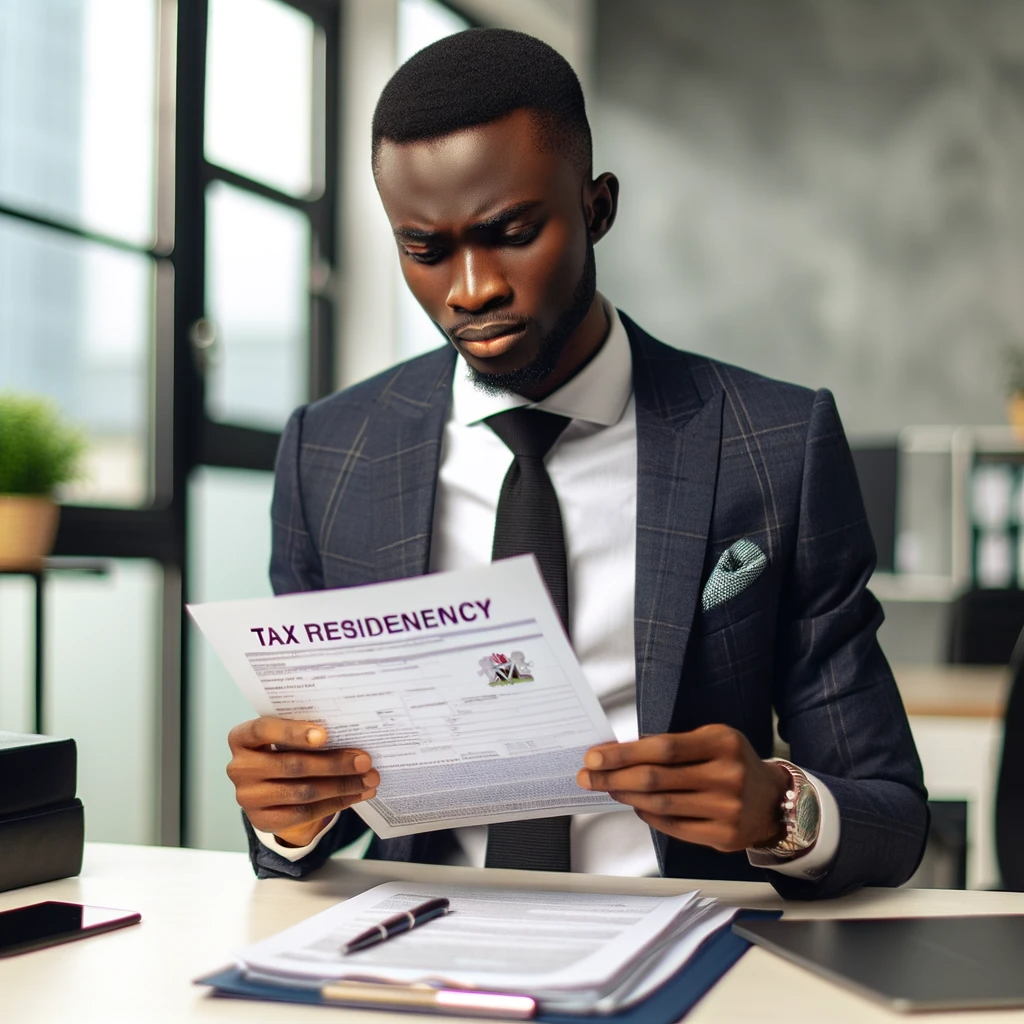Introduction
Brief Explanation of Freelance Contract Law
The concept of freelance contract law is the backbone of every successful freelance engagement.
Understanding Nigeria’s legal framework is therefore essential for freelance professionals.
Importance of Understanding Nigeria’s Legal Framework
In this blog post, we aim to provide a brief explanation of freelance contract law, highlight the importance of understanding Nigeria’s legal framework, and detail the purpose of this blog post.
Freelance contract law refers to the rules and regulations that govern relationships between freelancers and their clients.
It encompasses everything from the terms of the project to the delivery timeframe, the payment structure, and the dispute resolution mechanism.
Failure to adhere to these rules can lead to legal repercussions that could mar both the client and the freelancer.
It is therefore essential for all freelance professionals to understand the legal framework in Nigeria as it relates to their field of work.
This knowledge positions them to protect their rights, negotiate better terms, and reduce the risk of legal conflicts.
Purpose of the Blog Post
The purpose of this blog post is to provide a comprehensive guide to understanding the freelancer contract law within the Nigerian legal framework and present useful insights to help freelance professionals successfully navigate legal challenges in their line of work.
Knowing and understanding the legal landscape is pivotal to the success of freelancers, and this post aims to bridge the knowledge gap.
Overview of Nigeria’s Legal Framework
Nigeria’s legal framework is complex, yet crucial for conducting freelance business. Understanding the country’s legal system and laws is essential for anyone looking to engage in freelance work.
This section will provide an overview of Nigeria’s legal framework and explain the role of laws and regulations in freelance contract law.
- Nigeria operates a federal system of government with three tiers – federal, state, and local.
- The legal system is based on English common law, Islamic law, and traditional law.
- The Nigerian Constitution is the supreme law of the land and all other laws must conform to its provisions.
- The judicial branch of government is responsible for interpreting and enforcing the law.
The Nigerian legal framework is a complex system of laws and regulations that has seen rapid changes in recent years.
The country has made significant progress towards modernizing its laws and regulatory environment to support business growth and development.
Explanation of Nigeria’s Legal System
Nigeria’s legal system comprises several sources of law, including:
- The Nigerian Constitution
- Statutes enacted by the National Assembly
- Decrees promulgated by the military government
- Case law from the courts
- Customary laws based on traditionally accepted practices
The Nigerian Constitution is the supreme law of the land, and all other laws must adhere to its provisions.
The Constitution guarantees fundamental human rights, such as the right to life, freedom of expression, and equality before the law.
The Nigerian legal system is based on the common law system inherited from the British colonial era.
However, it also incorporates Islamic law and customary law, which is derived from traditional practices and beliefs. Customary law is mainly applicable in rural areas and is not used in commercial law matters.
The Role of Laws and Regulations in Freelance Contract Law
The Nigerian legal system plays a critical role in regulating freelance contract law.
Freelancers and clients must adhere to the country’s laws and regulations to ensure that their contracts are legally binding and enforceable.
The following laws and regulations are essential for freelance contract law in Nigeria:
- The Contract Law Act of 1961
- The Nigerian Communications Commission Act of 2003
- The Copyright Act of 1998
- The Trademarks Act of 1965
- The Patents and Designs Act of 1971
- The Companies and Allied Matters Act of 2020
The Contract Law Act of 1961
The Contract Law Act of 1961 provides the legal framework for the formation and execution of contracts in Nigeria.
It specifies the essential elements of a contract, such as offer, acceptance, consideration, and legality of the subject matter.
The Nigerian Communications Commission Act of 2003
The Nigerian Communications Commission Act of 2003 regulates the telecommunications industry and sets standards for the provision of communication services in Nigeria.
It requires telecommunication companies to enter into contracts with freelancers and other service providers for the provision of services.
The Copyright Act of 1998
The Copyright Act of 1998 protects the rights of creators of original works, including literary, artistic, and musical works.
Freelance content creators must comply with the provisions of the Act by seeking permission and obtaining the necessary licenses before using copyrighted materials.
The Trademarks Act of 1965
The Trademarks Act of 1965 provides for the registration and protection of trademarks, trade names, and service marks in Nigeria.
Freelancers who offer graphic design services must observe the Act’s provisions by ensuring that their designs do not infringe on any registered trademarks or service marks.
The Patents and Designs Act of 1971
The Patents and Designs Act of 1971 provides for the registration and protection of patents and designs in Nigeria.
Freelancers engaged in research and development must seek the necessary patents to protect their inventions or designs.
The Companies and Allied Matters Act of 2020
The Companies and Allied Matters Act of 2020 regulates the formation and operation of companies in Nigeria.
Freelancers who wish to incorporate their businesses must comply with the Act’s provisions by registering their companies with the Corporate Affairs Commission.
In summary, freelance contract law in Nigeria is a complex subject that requires a thorough understanding of the country’s legal framework.
Freelancers and clients must abide by the laws and regulations applicable to their contracts to ensure that their agreements are legally binding and enforceable.
Read: Nigeria’s Tax Reforms and Their Impact on Freelancers
Understanding Freelance Contract Law in Nigeria
Definition of Freelance Contract Law
Freelance Contract Law refers to the legal framework that governs the relationship between a freelancer and a client in Nigeria.
It is a set of rules and regulations that regulate the terms and conditions of the agreement between both parties.
Key Elements of Freelance Contract Law in Nigeria
- Offer and Acceptance: The freelancer and the client must agree on the terms and conditions of the contract.
- Consideration: Both parties must exchange something of value, such as payment for services rendered.
- Capacity: Both parties must have the legal capacity to enter into a contract.
- Intention to Create Legal Relationship: The agreement between both parties must be legally binding, and they must intend to create a legal relationship.
Types of Contracts in Nigeria’s Legal Framework
- Express Contracts: These are agreements where the terms and conditions are expressly stated, either in writing or verbally.
- Implied Contracts: These are agreements where the terms and conditions are not expressly stated, but are implied through the actions and conduct of both parties.
- Unilateral Contracts: These are agreements where only one party makes a promise, and the other party accepts it by performing a specific action.
- Bilateral Contracts: These are agreements where both parties make promises to each other, and both parties are bound to fulfill their obligations.
Essentially, understanding Freelance Contract Law in Nigeria is of utmost importance for both freelancers and clients.
It protects the rights and interests of both parties and ensures that their agreement is legally binding.
Freelancers in Nigeria should be aware of the key elements of Freelance Contract Law, while clients should consider the different types of contracts available under Nigeria’s legal framework before engaging a freelancer.
Read: Nigeria’s Legal System: What Freelancers Need to Know

Key Considerations in Freelance Contract Creation in Nigeria
When creating a freelance contract in Nigeria, it is important to understand the legal framework and key considerations.
Here are some things to keep in mind:
What to Include in a Freelance Contract
- Identification of the parties involved
- Description of the work to be done, including deliverables and deadlines
- Payment terms and schedule
- Intellectual property rights and ownership
- Confidentiality and non-disclosure agreements
- Termination clauses and conditions
- Dispute resolution methods
It is important to have a clear and detailed contract that outlines the expectations and responsibilities of both parties involved. This will help to avoid any confusion or misunderstandings later on.
Important Clauses to Consider
- Force majeure clause to cover unexpected events or circumstances
- Indemnification clause to protect against legal or financial liability
- Warranty and representation clauses for quality assurance
- Modification and amendment clauses to allow for changes to the contract
- Assignment and delegation clauses to address subcontracting or transfer of work
- Governing law and jurisdiction clauses to determine which country’s laws apply and where disputes will be heard
These clauses can help to protect both parties in the event of unforeseen circumstances or disputes.
It is important to consult with legal professionals to ensure these clauses are properly drafted and enforceable.
Pitfalls to Avoid in Nigerian Freelance Contracts
- Ambiguity or vagueness in contract language
- One-sided terms and conditions that favor one party over the other
- Failure to include or properly address key clauses
- Not complying with Nigerian contract laws and regulations
- Not obtaining proper signatures and approvals
These pitfalls can lead to legal disputes and financial loss. It is important to work with legal professionals and have a thorough understanding of Nigerian contract laws and regulations.
To sum it up, when creating a freelance contract in Nigeria, it is important to include key clauses, avoid common pitfalls, and comply with Nigerian contract laws.
A well-drafted and detailed contract can help to protect both parties and ensure a successful working relationship.
Read: Understanding Income Tax as a Nigerian Freelancer
Recent Developments in Nigerian Freelance Contract Law
Being a freelance worker in Nigeria can be risky without knowledge of the current legal framework.
Here are the recent updates that can be used for protection:
National and State Legislation Updates
- The Nigerian National Assembly passed the Companies and Allied Matters Act (CAMA) in 2020, allowing freelancers to register their businesses as a single-member company.
This protects their personal assets in case of legal disputes. - The Lagos State Government recently updated its tax laws, stating that freelance workers with an annual income of over N100,000 must pay personal income tax.
Court Rulings Impacting Freelance Contracts
- In a landmark ruling in 2019, the National Industrial Court declared that freelance workers should be considered as employees and are entitled to employment benefits like minimum wage and pension.
- Another ruling in 2021 upheld the validity of non-compete clauses in freelance contracts if they are reasonable and not against public policy.
Analysis of how These Developments can be Used to Protect Freelancers
With the passage of CAMA, freelancers can protect their personal assets by registering their business as a single-member company. This shields them from legal disputes involving their clients or suppliers.
Regarding tax laws, it is important for freelancers to comply with the updated regulations to avoid possible legal actions.
Freelancers can consult with tax professionals to determine their tax obligations and how to file them.
Freelancers can also benefit from the National Industrial Court’s ruling that they are entitled to employment benefits. They can negotiate better contracts with their clients and include provisions for employment benefits.
Moreover, the ruling on non-compete clauses provides a measure of protection for freelancers. Freelancers can include reasonable non-compete clauses in their contracts to prevent clients from poaching their clients or hiring their employees.
In a nutshell, being informed of recent updates on Nigerian freelance contract law can empower freelancers to protect their rights and interests, avoid possible legal issues, and negotiate better contracts.
Freelancers should take time to study the legal framework and consult with legal professionals for guidance on contract drafting and negotiation.
Read: Intellectual Property Laws for Freelancers in Nigeria
Discover More: Avoiding Legal Hurdles as a Freelancer in Nigeria
Best Practices for Freelancers
Freelancers in Nigeria can protect themselves under the country’s laws by following certain best practices.
Understanding your rights and taking proactive steps can help you avoid legal issues and maximize your chances of success as a freelancer.
How to Protect Yourself Under Nigerian Freelance Laws
- Ensure that you operate as a registered business entity, such as a sole proprietorship or limited liability company.
- Keep detailed records of all transactions, including invoices, receipts, and contracts.
- Ensure that you comply with tax laws, including obtaining a Tax Identification Number (TIN) and filing annual tax returns.
- Obtain the necessary permits and licenses to operate in your chosen field. Depending on your area of specialization, you may require specific certifications or professional licenses.
- Always draft and sign a contract with your clients before commencing work.
- Have a lawyer review your contract before signing to ensure that it is legally binding and protects your rights.
- Know your rights as a freelancer and assert them if necessary.
These include the right to be paid promptly and in full, the right to refuse work that is outside the scope of your agreement, and the right to take legal action if a client breaches your contract.
Understanding Your Rights as a Freelancer
As a freelancer in Nigeria, you have several legal rights that are enshrined in the country’s laws:
- The right to be paid promptly and in full for work completed
- The right to refuse work that is outside the scope of your agreement
- The right to sue clients who breach your contract
- The right to terminate a contract if the client breaches the terms
These rights are essential for protecting your income and ensuring that your work is valued and respected.
However, it is also important to note that you have certain legal obligations as a freelancer under Nigerian law, such as paying your taxes and complying with industry regulations.
Tips for Drafting Freelance Contracts
When drafting a freelance contract, it is critical to include certain crucial elements that will protect your interests and ensure that both parties are clear on the terms of the agreement.
These include:
- A detailed description of the work to be completed, including timelines, deliverables, and expectations
- The payment terms, including the rate, the amount of any deposit, and the terms of invoicing and payment
- The scope of the project, including any exclusions or limitations on your services
- The consequences of breach, including the remedies available if either party fails to meet their obligations
- The ownership of work product, including any intellectual property rights or licensing arrangements
- A dispute resolution clause, which outlines the procedures for resolving any conflicts that may arise during the project
By including these elements in your contract, you can establish clear expectations and protect yourself if any disputes arise.
Basically, as a freelancer in Nigeria, it is essential to be aware of your legal rights and obligations and take proactive steps to protect yourself.
Ensure your work is respected and valued, while minimizing legal issues by operating as a registered business.
Keep detailed records, comply with tax laws, and draft strong contracts to achieve these goals.
Conclusion
Summary of Key Takeaways
Freelance contract law in Nigeria is essential for protecting freelancers and their work from exploitation.
Freelancers should be aware of the legal framework and regulations to ensure compliance and protect themselves from legal disputes.
Final Thoughts on Nigeria’s Legal Framework for Freelance Contract Law
Nigeria’s legal framework for freelance contract law is still evolving, and freelancers need to stay up-to-date with the latest developments in the legal landscape to protect themselves better.
Call to Action
Freelancers must take a proactive approach to protect themselves and their work by understanding and complying with Nigeria’s freelance contract laws.
Achieving this involves obtaining legal advice, utilizing legal templates, ensuring signed contracts, and establishing payment structures.
All freelancers have a legal right to demand payment for their services, and contracts are the way to ensure this happens legally.




